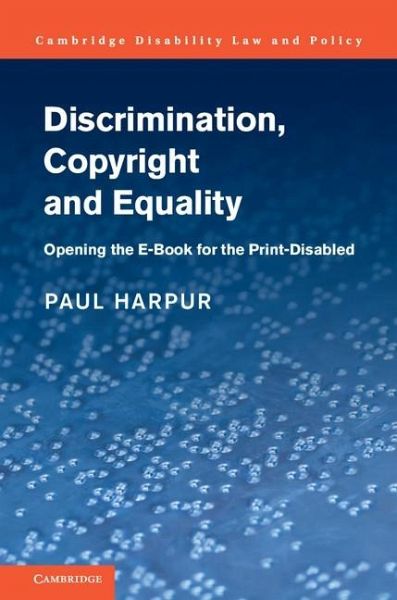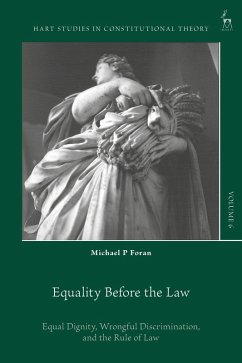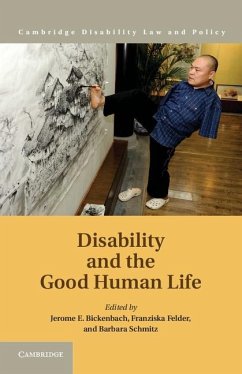
Discrimination, Copyright and Equality (eBook, ePUB)
Opening the e-Book for the Print-Disabled
Versandkostenfrei!
Sofort per Download lieferbar
19,95 €
inkl. MwSt.
Weitere Ausgaben:

PAYBACK Punkte
10 °P sammeln!
While equality laws operate to enable access to information, these laws have limited power over the overriding impact of market forces and copyright laws that focus on restricting access to information. Technology now creates opportunities for everyone in the world, regardless of their abilities or disabilities, to be able to access the written word - yet the print disabled are denied reading equality, and have their access to information limited by laws protecting the mainstream use and consumption of information. The Convention on the Rights of Persons with Disabilities and the World Intelle...
While equality laws operate to enable access to information, these laws have limited power over the overriding impact of market forces and copyright laws that focus on restricting access to information. Technology now creates opportunities for everyone in the world, regardless of their abilities or disabilities, to be able to access the written word - yet the print disabled are denied reading equality, and have their access to information limited by laws protecting the mainstream use and consumption of information. The Convention on the Rights of Persons with Disabilities and the World Intellectual Property Organization's Marrakesh Treaty have swept in a new legal paradigm. This book contributes to disability rights scholarship, and builds on ideas of digital equality and rights to access in its analysis of domestic disability anti-discrimination, civil rights, human rights, constitutional rights, copyright and other equality measures that promote and hinder reading equality.
Dieser Download kann aus rechtlichen Gründen nur mit Rechnungsadresse in A, B, BG, CY, CZ, D, DK, EW, E, FIN, F, GR, HR, H, IRL, I, LT, L, LR, M, NL, PL, P, R, S, SLO, SK ausgeliefert werden.













